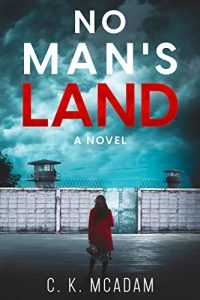No Man’s Land
No Man’s Land
 When I was fourteen years old, the country where I grew up, the German Democratic Republic (GDR), ceased to exist – her anthem and her flag, together with her borders, vanished. She was merged into another country, a country which paradoxically was her sibling, sharing a language, a culture, and a mutual history, while at the same time existing as its ideological enemy for the previous 40 years. The country it joined in 1990 was truly democratic, progressive, strong, prosperous, and peaceful. Unlike its predecessors in the first half of twentieth century, this newly reunified country in the center of Europe would become a proponent and leader for unity, peace, and brotherhood for the continent in the second half of the same century and beyond.
When I was fourteen years old, the country where I grew up, the German Democratic Republic (GDR), ceased to exist – her anthem and her flag, together with her borders, vanished. She was merged into another country, a country which paradoxically was her sibling, sharing a language, a culture, and a mutual history, while at the same time existing as its ideological enemy for the previous 40 years. The country it joined in 1990 was truly democratic, progressive, strong, prosperous, and peaceful. Unlike its predecessors in the first half of twentieth century, this newly reunified country in the center of Europe would become a proponent and leader for unity, peace, and brotherhood for the continent in the second half of the same century and beyond.
The downfall of the German “Democratic” Republic, the Eastern half of the reunified Germany, came in the late autumn of 1989. But it was in the summer of that year that a number of its citizens fled to the West German embassies in its Warsaw Pact neighboring countries to the East. The GDR was hemorrhaging its very life blood, her people. In the fall, its citizens took to the streets and started a revolution – not a bloody one as everyone had feared, but a “soft” revolution, as it became known.
Everyone feared a Soviet intervention, as had happened in June of 1953 when Soviet tanks crushed a worker’s revolt in East Berlin. But the Soviet tanks never rolled in. Gorbachev was occupied with reforming his own country. When unprecedented protests by hundreds of thousands of East Germans occurred in the streets of Berlin and Leipzig, the communist regime made one concession after another to appease its citizens. The slogan that drove these protests? “We are the people!” Among the demands of the protesters were the freedom to travel and new elections. This was the beginning of the end for the GDR.
That summer of 1989, my parents decided to spend our family vacation in Hungary, a country that had just opened its borders to the West a couple of months earlier. Many had fled across the border between Hungary and Austria since May. On our uneasy vacation there, we enjoyed Coca-Cola and purchased stone-washed jeans and neon-colored t-shirts, which were impossible to acquire in the GDR, except on the black market. After a week in Hungary, my parents took us to the thermal springs in western Hungary. We only had our swim suits in the trunk of our Zaporozhets, a Soviet second-generation compact car, whose muffler had the tendency to detonate loudly, which was embarrassing to a 13-year-old teenager.
Little did my siblings or I understand that our Hungarian “vacation” was in fact a defection attempt. That day after our swim, the noise from our muffler alerted a Hungarian border guard to our presence, and he suddenly came into view in front of us. My father stopped the car, but kept the engine running. My parents looked at each other, and we three children looked at them from the backseat. The border guard raised his Kalashnikov. My mother screamed; with gravel spraying, my father abruptly turned the car around. Feeling their panic, we screamed at them, demanding answers about what just had happened, and were told that they wanted to leave the GDR.
After our return home, my parents applied for an exit visa. They wanted to get out. It could take years to get such a visa approved – years of facing ostracization, ridicule, and persecution by the government and its supporters. We lived in the restricted zone, in a border village much like the one in No Man’s Land. My uncle was a border guard. Once my family was blacklisted by the government, we were dead to that branch of our family. My father lost his job. The Stasi (East German Secret Police) came for visits. Teachers at our school only had disdain for us children.
In November, after months of massive protests, the Berlin Wall fell. All exit visa applications were approved with the opening of the borders to the West. We were given two weeks to leave the country. My parents tried to have a relative take over our house, which had been built by my great-grandfather, but no one was willing or able. We sold it to a communist. He and his family still live in it, and I dream of the day that I have enough money for an offer they cannot refuse so it once again can belong to our family.
Upon our arrival in West Germany, we were fortunate to have to spend only a few hours in a refugee camp because we were taken in by my grandmother’s brother, a rich architect whose BMW was a stark contrast to our Zaporozhets. We spoke the same language, but it was a foreign country, especially to us children. We had grown up secretly watching West German TV, but it all felt strange and overwhelming and was nothing like the TV shows. As kids tend to do, we adapted. We were now citizens of the Federal Republic of Germany and learned to sing a new anthem.
My debut novel, No Man’s Land, is not autobiographical, but some characters’ traits, situations, and scenes are inspired by my own experience. I lived behind the Iron Curtain in a border village, which was first occupied by the Americans at the end of WWII, but shortly thereafter was swapped with the Soviets for another village farther upstream. This barter condemned our village to 40 years of captivity under the communists. This is how we ended up on the wrong side of the fence, staring at no man’s land for all those years.
My father, as a teenager, had once brazenly risked his life to cross that deadly, barren strip. He had made it across mined fields, fences, and barbed wire, only to come back after a week (that is a story for another time, centered on a secret that was kept by the local authorities). His Stasi file was thick nevertheless, as one Stasi officer once mockingly told him. I am still trying to get my hands on it, but my father still drags his feet. I will continue to be patient because I understand his hesitation. No Man’s Land is dedicated to him.
—
K. McAdam writes historical fiction. Her debut novel No Man’s Land was inspired by her family’s history, her own upbringing, and the history of Cold War East Germany. A prequel, set during WWII, is planned for next year. Her current project is a Holocaust fiction novel. She holds a Ph.D. in history and literary studies and teaches college. Together with her family, she resides in Texas but hails originally from Germany where she grew up. When not reading, writing, researching, or teaching, she loves to spend time with her family, friends, and corgi Merlin, play pickleball, hike, travel, and eat chocolate.
For more information about the author visit www.mcadambooks.com and follow her on social media.
NO MAN’S LAND
 Escaping is deadly … so is staying
Escaping is deadly … so is staying
East Germany. 1972. An accomplished violinist and her husband attempt to cross the heavily fortified inner German border to escape the claws of the oppressive East German regime, leaving everything, even their families, behind. But their escape doesn’t go as planned. She must choose—her husband and the innate human need for freedom or motherhood, family, and friends.
Years pass and hope dissolves under the constant scrutiny of the East German Secret Police. Coerced to become an informant to the dreaded Stasi, she is forced to play a dangerous game of cat and mouse to reunite her family. But who is watching who?
When in 1989 the Berlin Wall falls, she finally has to decide where and with whom she truly belongs.
No Man’s Land is a historical fiction novel set during the Cold War behind the Iron Curtain in communist East Germany. It is one woman’s and her family’s harrowing and captivating tale of survival and defiance.
The vivid description of the setting, palpable suspense, and zeitgeist of the story make No Man’s Land a cinematic reading experience. It describes a reality that still rings true for many people in other parts of the world.
Category: On Writing























